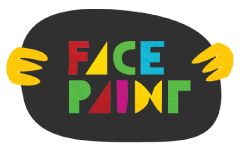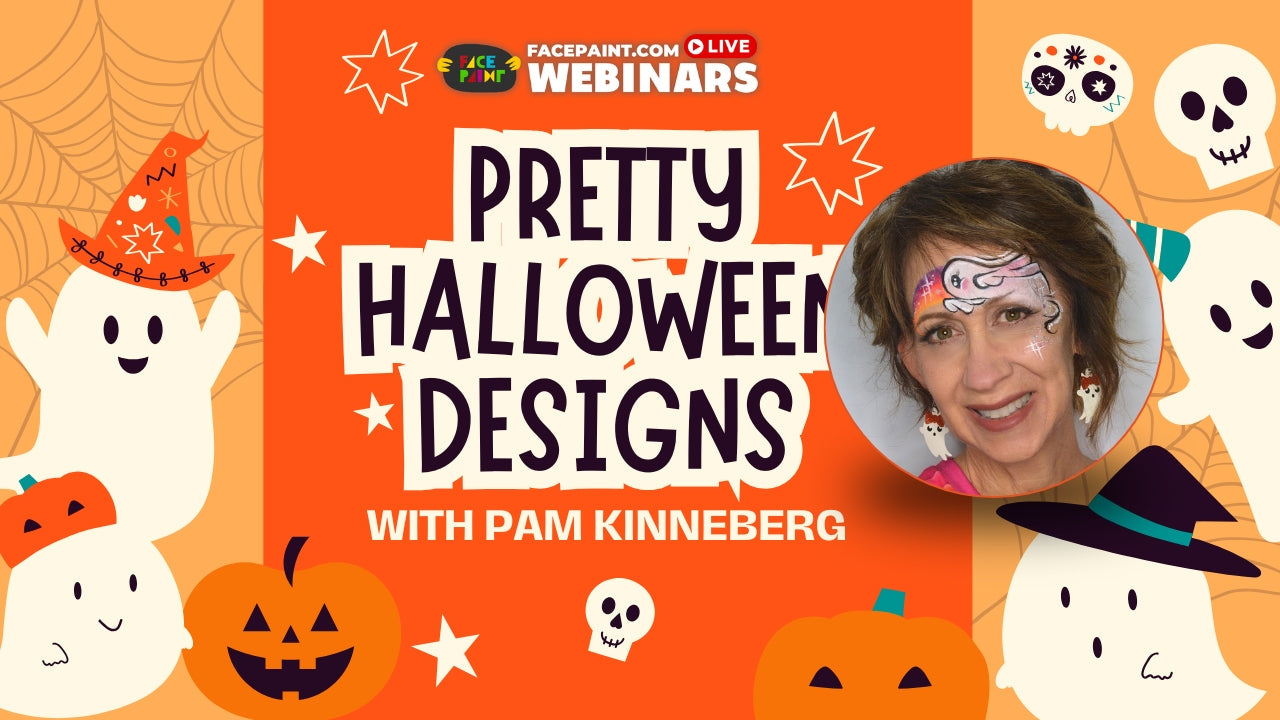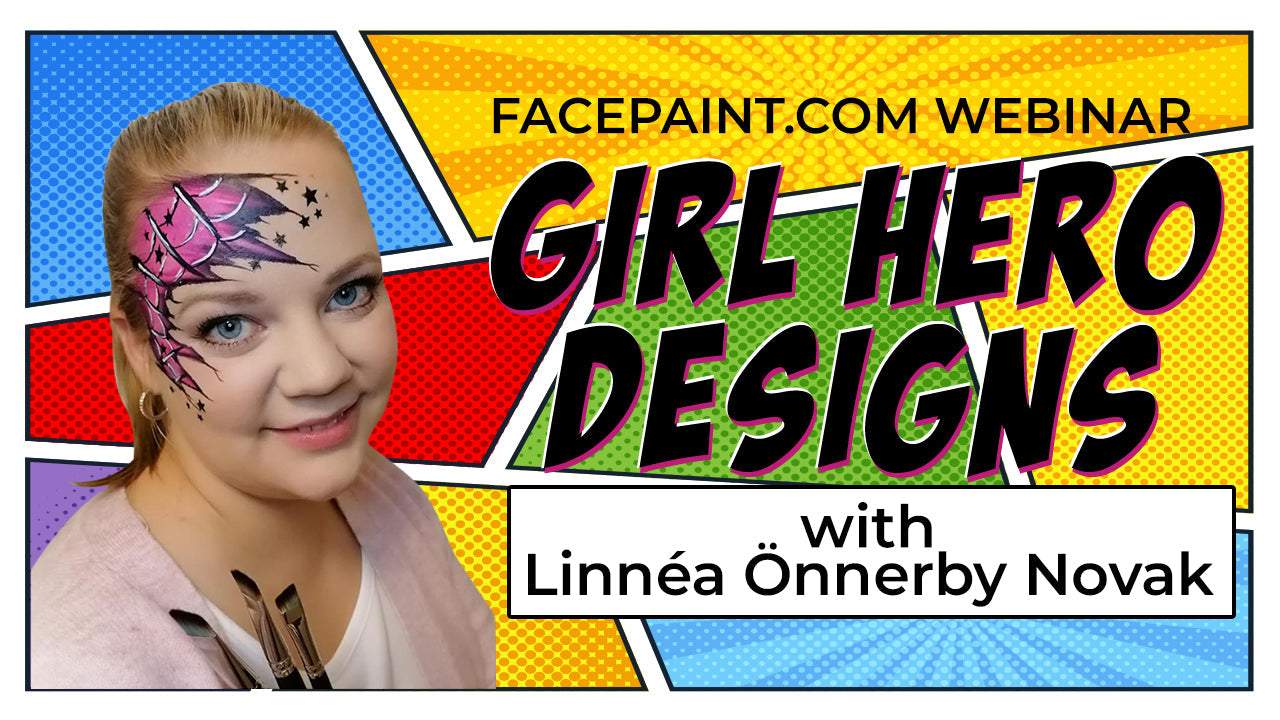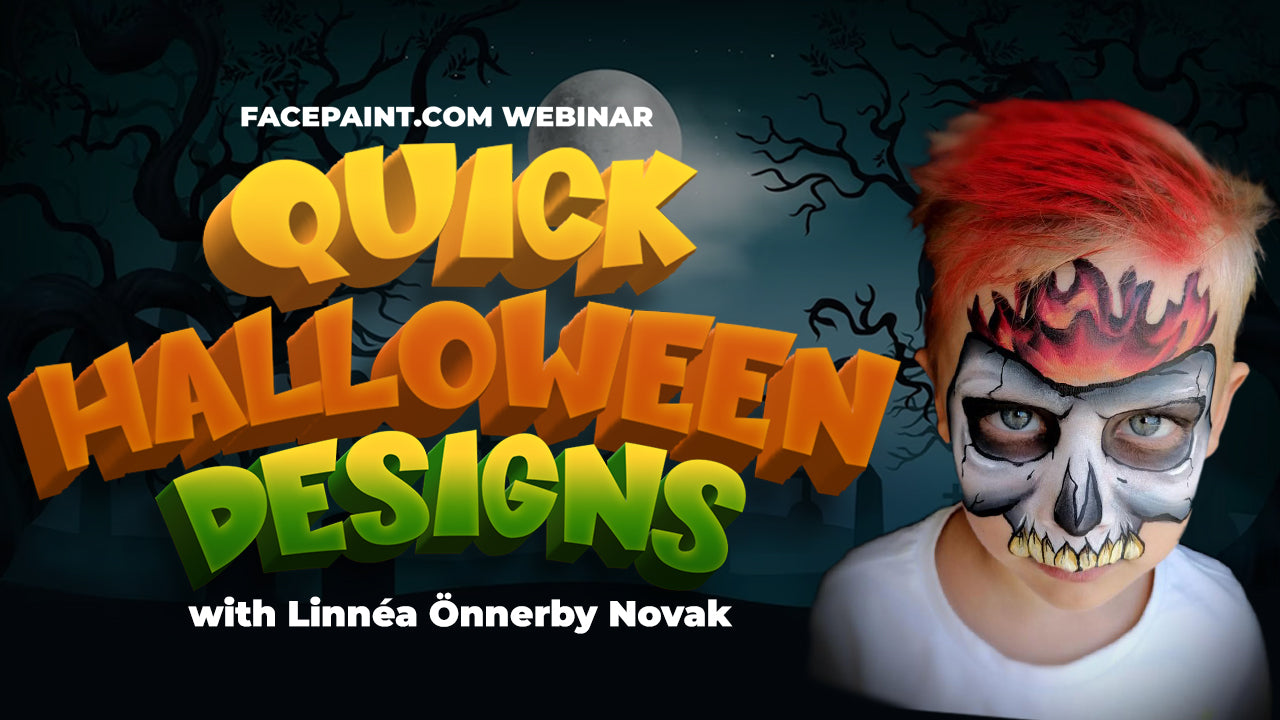As a face painter do you consider yourself an artist? We have tattoo artists producing colorful murals on human skin, professionals in the makeup industry can transform a person into an animal if they wish, the work they produce is amazing and requires great talent which by all means is a form of art. So what of the face painter, could we be considered artists as well? The reason I am writing this is due to the fact face painters are often overlooked as a person of great talent. With a palette that rivals nature itself we work on a canvass with a brush and paint much like any artist would with water colors, our art can be of most anything the mind can imagine and beyond. Face painting can transform a person into a fairy princes, a swashbuckling pirate, a cute animal, or an arm adorned in a beautiful tapestry. Many of these works of art are accomplished in under 3 minutes on a wiggly, giggly 5 year old, which makes our medium even more of a challenge. Where do you think you stand as a face painter; a beginner, novice or perhaps a seasoned professional? There are reasons why we may not be considered an artist or that face painting isn’t a serious profession but we have the ability to change this. We can improve upon our skills to help make us a better face painter and conduct ourselves as professionals in the business world. Here are a few tips to help change the stigma of being a labeled kid’s party entertainment.
Do’s and Dont's of Face Painting
*Using poor quality paints can produce runny and faded looking work. Cheaper paints also do not always meet FDA standards and may be harmful to your subject.
*NEVER use poster paint or other art paints! I’ve said it before and I’ll say a thousand times more, non toxic on the label does not mean it’s safe to put on human flesh. This is careless and irresponsible.
*ALWAYS use professional face paint or other forms of professional makeup. The quality of your work will be greatly improved with the right products and your customers are assured a safe paint job.
*WARNING anyone can have an allergic reaction to even the mildest form of makeup, it’s best to educate your customers of this fact if they may have sensitive skin. The more knowledge you have of the products in your kit and are able to share with your clients makes you all the more professional.
*Aspire to be great; if you were to look back at the work of any great artist we would see the difference from what they produced as a young child to what made them revered as an artist as an adult. There are a variety of books and tutorial videos at your disposal to help improve your skills.
*Know your clientele. Don’t be afraid to interview your client before booking the show discussing what they are looking for and what you are able to deliver for their specific event. A small party with 10 or less people to paint can allow you to be far more creative than an event with 50 or more people to paint. Provide samples of your work and be able to deliver that at the event, providing a service that is less than what the client was expecting will not help boost your career.
*Be treated with respect. Make it clear to your client what it is you need from them to help ensure the best results for their guests. If you need to be in a shaded area or electrical supply for any of your tools, get it in writing prior to the show, this puts the responsibility on the client to provide a proper work space for you. Both you and the host have the same goal, that the guests have fun and enjoy their face paint. By communicating this with your client, you should have no trouble getting what you need.
*Have a professional kit. Trust me, a top fashion photographer does not show up to the job with a point and shoot camera around their neck, they have everything they need to make their work look the best it can. So you should not roll into a face paint event with a pile of supplies in a grocery store bag, have quality equipment and supplies organized into a nice kit presenting yourself as the professional you wish to be. Keeping your paints and brushes clean and organized will truly impress upon your client that you are serious about your work and will deliver a good product.
*Bigger is not always better. Having a rolling kit the size of a small bus does not make you a better painter if you don’t know how to use any of it, I have seen some of the best face painters around working from a modest kit. I am not saying large kits are wrong, just make sure the face paints you produce is what impress people not all the supplies you lay out.
*Have a catalog of your work. Not only is this a good for showing samples to perspective clients but you can look back on your earlier work to see if you have improved or if improvements could be made. Displaying your art at your workstation helps people decide what they want and draws people to you.
Be Creative:
This is a sample of my friend Irina’s work, the blending of the colors accompanied by the scrolls and accents makes this little girl a walking masterpiece. Irina works from a very basic kit, she has more than enough supplies to create beautiful faces for hours in a kit she can carry in one easy trip from her car. She also spends time with other face painters from around the world sharing techniques and tips. Working with others in your field is always a good way to challenge yourself to be better and learn new skills.
If you want to be looked at as an artist you must bring your A game to the table. The simple face paints are fine especially if you have a subject that is just too bouncy or time constraints prevent highly detailed work, but producing a true masterpiece will turn everyone’s head. This does not happen overnight but practice and trying new techniques will open new doors for you as a face painter and people will see that your work is really that of a true artist. So if being considered an artist in your field is what you desire, take the time to practice and try new things and you will be rewarded for your hard work.






